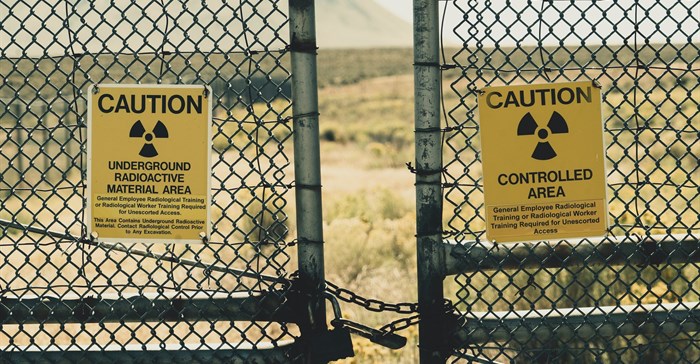
Top stories

Marketing & Media“The more things change…”: From Joe Latakgomo to deepfakes
Karabo Ledwaba 20 minutes





More news




















The multi-faith organisation argues that independent policy analysts and finance institutions concur that South Africa does not require an expensive energy source like nuclear power. The reliability and cost-effectiveness of nuclear energy, they say, have been thoroughly debunked over the years, with the inconsistent performance of the Koeberg nuclear power station serving as a recent example.
Francesca de Gasparis, SAFCEI executive director, challenges the often-repeated narrative of nuclear cost-effectiveness. She argues that when considering the total costs of nuclear power, from construction to decommissioning and containment of radioactive waste, the narrative falls apart.
“Global energy developments in renewable energy mean that nuclear power is now the most expensive type of energy generation to build, and we believe nuclear power is too risky, in terms of climate modelling and the proximity of the Cape Town growing population," says De Gasparis.
"The cost of maintaining nuclear power is one of the reasons we’ve been calling for the decommissioning of Koeberg to prevent people living in South Africa being saddled with even higher electricity costs. The cost of the problems that keep recurring with Eskom trying to extend the life of the aged power plant are what we will be paying for. It is clear in the global market and trends that nuclear has had its day, and it is time to invest and focus on renewable energy."
The environmental advocacy group argues that the development of PBMR technology began in 1998 and yet it was still 20 years away from commercialisation by 2010.
"Civil society was always opposed to the PBMR programme and the government spent 80% of the R10bn directly from taxpayers, 9% from Eskom and 5% from the Industrial Development Corporation (IDC). Today less than 300 units of electricity costs R1,000 in South Africa, this is after double digit percentage increases year on year due to Eskom trying to cover its burgeoning costs. SAFCEI and other civil society organisations believe that it is misleading to claim that the mini reactors can be constructed and ready by 2026 and most importantly, how much will it ultimately cost the ordinary person? What costs will be passed onto the electricity user?" read a statement released to the media.
Energy activist, Peter Becker, says the claim that a small modular reactor could be built in the Western Cape and operating by 2026 or even 2027 is ridiculous and obviously nonsense.
“One only has to look at the share price history of X-Energy - the company making these claims - it has fallen to a tenth of what it was worth in 2021. A similar company NuScale, which is also hoping to make small modular reactors, is constantly increasing the cost estimates for their product, and their share price has fallen to a quarter of what it was a year ago," argues Becker.
"Clearly the international investors have no faith in these companies being commercial successes, which makes one question if it would be prudent for anyone in South Africa to even consider spending any money on their unproven technology.”
According to Emeritus Professor Stephen Thomas of Greenwich University, if the money wasted on the PBMR had gone to other programmes – such as renewable energy sources - South Africa would not now face the current energy shortages. By now, South Africans could have had energy bills that would not be as crippling, and recent rate hikes would not have been so steep.
Ulrich Steenkamp of Earthlife Africa Johannesburg says South Africa has a long history with PBMR and it is unsavoury to even consider it when it was such an expensive failure for the country.
“This is an utter disgrace for energy democracy in South Africa. We cannot opt for any expensive or dangerous technology, especially one which is unproven, such as pebble-bed modular nuclear reactors. It just begs the question, why go there again when we have tried it and failed?” she suggests.
“These mini nuclear reactors have been in development for decades now and we are told that they will be ready for usage in another 10 years. We know what we need to do for our energy system, and we know how to address energy poverty and the energy crisis in South Africa. We don’t need new unproven and expensive technology that has already cost the country billions of rands," says De Gasparis.
"This conversation has already been had and put to bed. We don’t know why the specter of this kind of energy system keeps on rising when there is affordable and easy to install renewable energy, available right now, which we should be investing in for the Western Cape.”